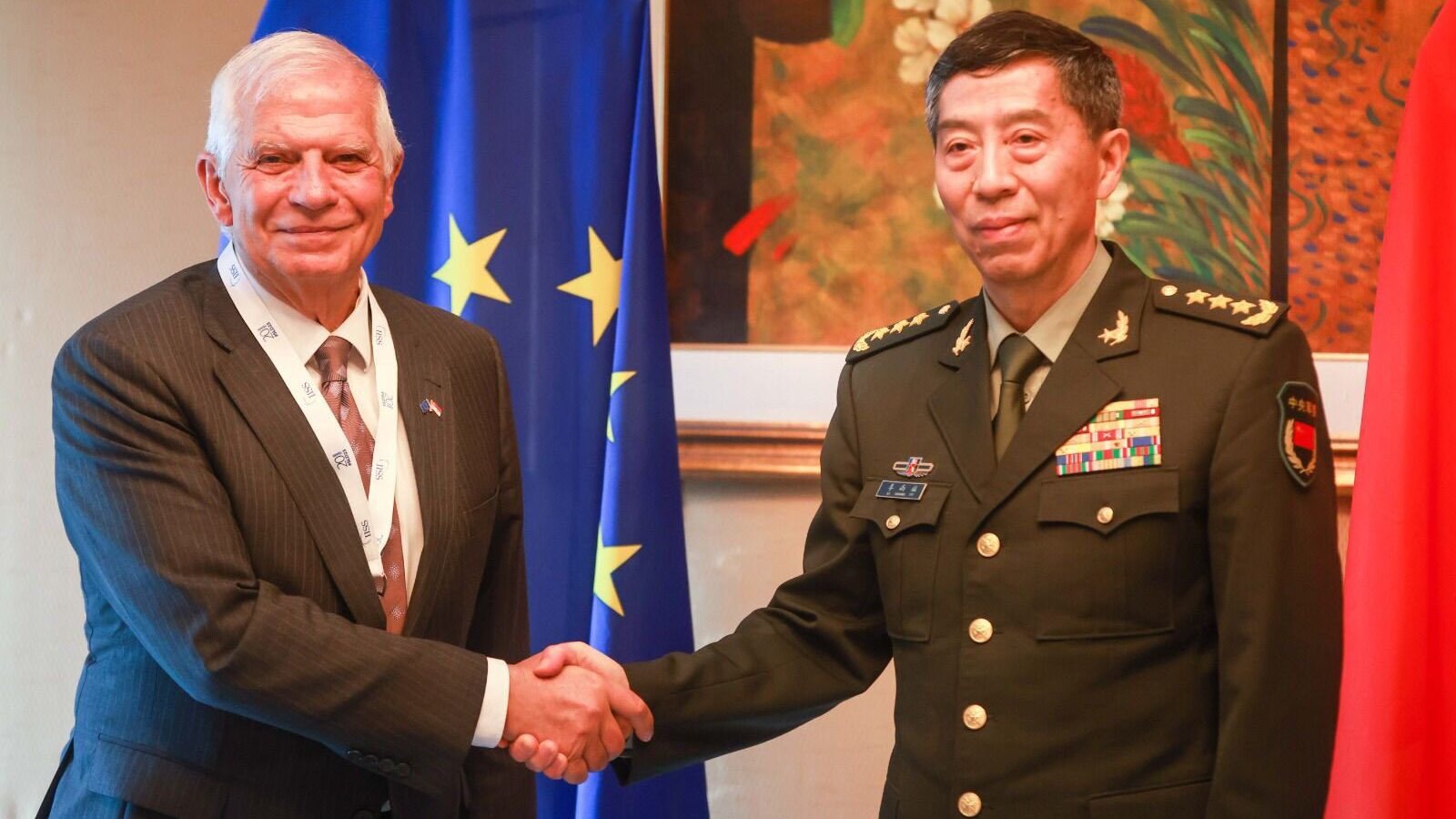
Josep Borrell and Chinese Minister of Defence Li Shangfu at meeting in early June, 2023.
China has unexpectedly called off a planned diplomatic visit by the EU’s top foreign policy official Josep Borrell to Beijing in a move rumoured to be motivated by the bloc’s increasing hawkishness towards China and growing foreign policy alignment with the United States.
Borrell, the EU’s High Representative for Foreign Affairs and Security Policy was scheduled to visit Beijing for a three-day visit next week to discuss future relations between Europe and China. However, officials confirmed Tuesday, July 4, that the visit had been suddenly cancelled by the Chinese without explanation.
Borrell had hoped to raise the issues of Ukraine, human rights abuses against the Uighurs, and trade disputes with Chinese leaders, following the cancellation of a previously planned visit this year after he tested positive for COVID-19.
The cancellation comes as Europe appears to have reached a crossroads regarding its future orientation towards the Asian superpower amid pressure from the United States to begin a process of economic and geopolitical decoupling. China is particularly concerned that the EU is following America’s lead in the Indo-Pacific region, as various EU member states such as the Czech Republic, Italy and the Netherlands lobby for greater ties with Taiwan.
Last month the European Council signed off on sanctions against Chinese companies alleged to be supplying Russia, and China stands accused of being a relay point for European military hardware into Russia.
Borrell’s cancellation follows a successful visit last week to China by EU climate chief Frans Timmermans to discuss combating climate change and the ominous announcement that China will limit the export of gallium and germanium to Europe, both critical materials to the Green transition.
The foreign policy chief had previously written of his wish to see Europe’s relationship with China rebalanced to protect the EU’s self-interests, describing a “weaponization of technology and interdependence” by the CCP as China transforms from a source of cheap labour and goods to a technological powerhouse.
In April, he provoked anger over comments broaching the possibility of sending European warships to the straits of Taiwan with the island’s independence a major sore point for the ruling CCP.
French President Macron called for Europe to seek a third way to counter an emerging divide between Beijing and Washington, while Commission President von der Leyen articulated the EU’s policy vision of “derisking” Europe’s relationship with China.
Last week Jorge Toledo, the EU’s ambassador to China, articulated Europe’s frustration that China has maintained an ambivalent stance regarding the current war in Ukraine despite presenting a peace plan and posturing as a neutral arbiter on the world stage.
Europe has been moving to “China proof” its economy in recent months, regarding the sourcing of critical raw materials and strategically vital semiconductor technology, due to fears of growing tensions between China and the West.
